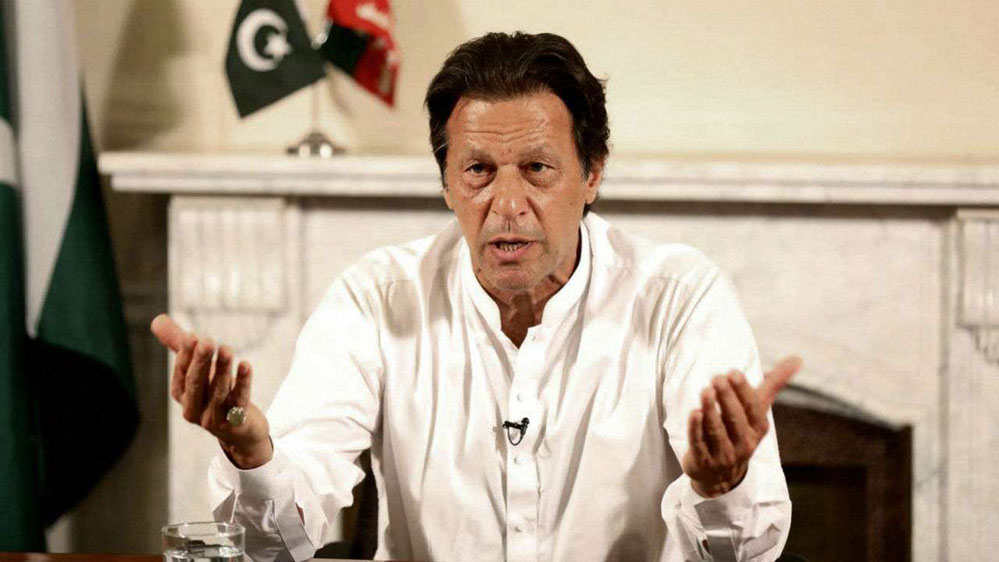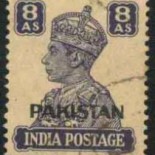Dignity of criticism
We are living in challenging times for democracy in Pakistan and the role of reputable news organisations in shaping public opinion is too vital to be taken lightly

By Zahra Sabri
Prime Minister Imran Khan has had an interesting relationship with the media during his political career. In the early years, analysts didn’t see his party as going anywhere but his celebrity status and readiness to appear for interviews meant that he remained very much in the news either as a political activist or cricket commentator, especially with the proliferation of private television channels.
Following the departure of Musharraf in 2008, support for his party gained pace as a result of expanded ground-level organisation, social media outreach, and increasing dissatisfaction in the country with the prevailing democratic choices. The seeming domination of the social media realm by PTI supporters led to a mocking perception in many quarters of the intelligentsia that this party could win an election only on social media and that the class which supported it composed merely a small group of Westernised urban youth who could not even be relied upon to get out of bed to vote on election day.
Though some people with their ear to the ground realised that the tide was turning by the time the next elections came round, a surprisingly large number of veteran analysts pooh-poohed the idea of a massive cross-class gain in PTI support even on the eve of the 2013 elections. The PTI’s subsequent emergence as the second-highest vote-taker nationally caused significant surprise and even embarrassment for a number of these analysts. For many of them, the failure to judge which way the wind was blowing was likely caused by a case of wilful blindness. Having grown up on a diet of revolutionary poetry during the 1960s and 70s, there was an emotional resistance to recognising what a trouncing was coming the way of parties which still have a left-tinged romanticism attached to themselves despite their reputation of unparalleled fiscal irregularities.
Already a game had become popular on Twitter where certain such journalists/analysts (mostly from the English press but also from electronic media) would be dismissive about the PTI chairman’s prospects and capabilities and desperately confident PTI fans would react in a harshly emotional manner that both tickled and aggravated the analysts. With the now clear increase in the chances of a PTI victory, this game became only more bitter and acrimonious and a number of analysts seemed to go out of their way to respond to and bait the ‘trolls’, taking pleasure in the petty skirmishes.
Some analysts are now trying to argue it was raising the issue of civilian supremacy that unleashed the PTI’s ire against them, but in truth the ‘fun’-filled conflict between PTI trolls and sections of the media extends far back to a time when the issue of civilian supremacy had not yet become important in the context it has now since the 2013 elections.
There could be little balance in weighing up the PTI chairman, it often appeared, judging by the Twittersphere over the past six or seven years. If you didn’t love, you loved to hate. Voices falling in the middle of these two attitudes seemed to get doused somehow, uneasy about becoming associated publicly with either extreme.
Now that there is a PTI government at the centre and the stakes are even more serious, will this change at all? It’s one thing for mature media professionals to vent in a brash or politically incorrect manner in a private setting (we can all be excused for that), but quite another to do so on public platforms. How an editor, reporter, anchor or analyst deports her/himself in public posts on Twitter and Facebook will, fairly or unfairly, have an inevitable effect on how the information or opinions presented in their publications or programmes are received by the public.
In a recent public post, a newspaper editor declared having absolutely no time and patience for anyone who voted PTI. This means the majority of the country, and includes citizens of all genders and most ethnicities, religions, and religious sects.
If the editor had worked for a radical leftist/rightist publication with a niche audience and declared bent, it might not have been such a serious matter. But this was a popular, mainstream high-quality newspaper relied upon for information and analysis by a wide cross-section of English readers in society. Biases are natural, but openly declared biases?
Media organisations need to think seriously about the potential effects of letting their senior staff run amok on social media. Otherwise, it does not bode well for the perception of objectivity of news organisation. In these depressing times for news organisations, let at least the veneer of objectivity remain for the media houses who have rather more credibility than others and steer clear of ‘lifafa’ journalism.
The truth is that the famous, unreasoning PTI ‘troll’ is not the only kind of voter there is. Plenty of Imran Khan’s voters are sceptical and critical of various aspects of his party’s performance, policies, and rhetoric. They shouldn’t be pushed by the perception that the press (and the English press in particular) is hopelessly biased against him (and them) to start fading out any and all media criticism of the party.
It is not fair to depict the PTI as a rightist party. It is a centre-right party. Perhaps a little to the left of the PMLN. Perhaps. And the PPP is a centre-left party. There are fine distinctions between all three, but not massive ones. Hence, the hysteria fanned by sections of the Pakistani press, and taken to unbelievable proportions by the foreign press, is rather misplaced.
Any number of people from the ‘minority’ communities have voted for the PTI both in 2013 and 2018, including the Shias, Christians, Hindus, Kalash. In fact, contrary to how the issue is being reported, for some of these communities, their religious and community leaders went out of their way to urge followers to vote for the PTI. As far as the Ahmadis are concerned, no mainstream party seems to risk openly courting their vote. Otherwise, some Ahmadi religious leadership too had earlier endorsed the PTI.
What has to be understood is that the issue of financial irregularity appeals to middle-class (and to some extent, even poor) communities across the sectarian/religious spectrum. It is seen not merely as an ethical issue, but as a sin against God and his creatures. Corruption itself is pertinent to religiosity. And that is how the PTI amplified it. The minorities are not mobilised on the issue of security alone, although they remain hopeful that that is also an issue that the PTI’s reforms might help address. This is the reason that Shias along with Sunnis voted for a party which has often appeared less eager to lambaste a group like the Taliban than other parties might be. The PTI thus clearly has a cross-sect religious appeal and also a cross-religious ethical appeal.
The PTI propaganda machine is massive. We have not seen anything of these proportions for a long time in this country. And it is powered by the frantic hopes of people who must have something. Many facts that are inaccurate and ahistorical are often seen being popularised by the PTI leadership. It would be unhealthy for the country for the PTI to be carried along on a wave of goodwill and forgiveness.
Constructive criticism is definitely needed, and for this to have an effect, we who are in the business of shaping opinions must make sure not to lose our dignity. An analyst or journalist’s public persona is important. We need more neutral-looking and well-respected journalists and analysts in this generation.
We are living in challenging times for democracy in Pakistan and the role of reputable news organisations in shaping public opinion is too vital to be taken lightly. Critique needs to appear measured and dignified and focus on the major issues which affect mainstream life for the masses, rather than on frivolous mockery. Mr Imran Khan’s current wife came to occupy the position she does in rather enigmatic circumstances about which some speculation is certainly reasonable. However, when prominent journalists and academics focus their attention so closely on the new first lady’s attire and openly fritter away their time in tweeting distasteful memes ridiculing the ‘opaqueness’ of her dress, it conveys the image of neither intelligence nor education.
The majority of the women in this country favour some sort of head or face covering upon occasion, sometimes only in special circumstances. Media criticism needs to distinguish between criticism of religious intolerance and that of any evident sign of religiosity in general. Constant mockery of women’s traditional dress choices would be counter-productive. Issues to do with the rights of half of Pakistan’s citizenry – the women – are far too important and urgent to be turned into a mere journalistic fetish. Traditional women should not be made to feel silenced and excluded from public forums of debate just because they cannot subscribe to some universalist (read mostly Western) understanding of women’s rights.
Imran Khan has already said in his book in 2011 that the English press is always making fun of local culture: “Every day there is some article in an English paper ridiculing or criticizing some local custom. Yet it makes no difference to the masses because only a small percentage of the population reads them.”
Increasingly, it’s not the radicals who are criticising us and becoming dead set against us. It is people who live fairly liberal lives and push liberal values who are becoming dead set against the English press in ways that their own English-speaking ancestors were not. We cannot afford to have a situation where huge numbers of educated readers in today’s Pakistan tune out what some of the most historically prestigious sections of the press have to say. The consequences are too dire to imagine.
As the columnist Asha’ar Rehman warned the PTI’s “dismissive, fun-making critics” while writing in Dawn a few years ago, there will inevitably be a price to pay for a lack of sober engagement and “pretending for so long that you were only up against a comic character you could use for some cheap entertainment”.
The writer is a researcher in South Asian history and has worked as a journalist for the Pakistani press.
A reduced and restructured version of this article appeared in The News International on Aug 26, 2018:
http://tns.thenews.com.pk/dignity-criticism/#.W_9bBmhKhaR
